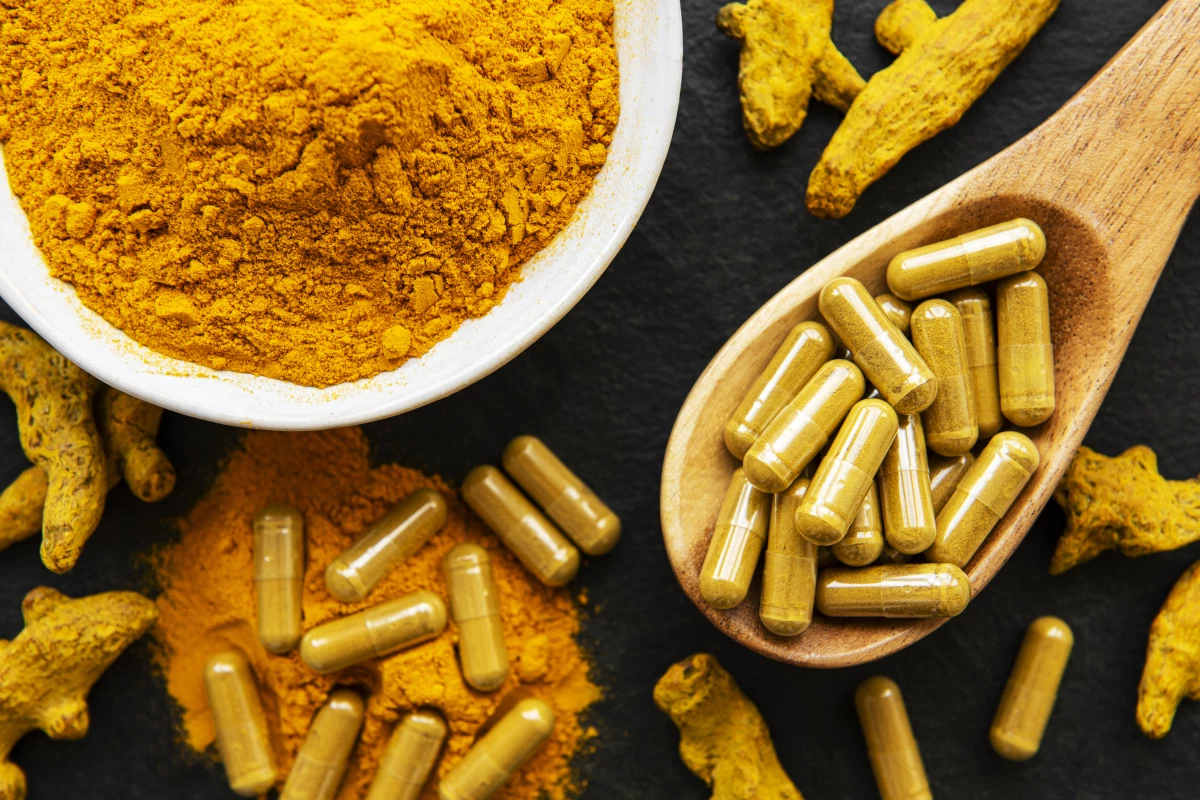More than 15 million Americans may be putting their liver health at risk, simply by trying to better their overall health. New research has revealed the extent of the damage being caused by taking popular botanical supplements including turmeric, green tea, the stress-relieving ashwagandha and weight-loss aid Garcinia cambogia.
Health researchers from the University of Michigan, Ann Arbor, looked at data from 2017 to 2021, covering 9,685 people, and found that nearly 4.7% of US adults had used one of the six potentially toxic supplements within the previous 30 days. Those supplements were turmeric, green tea, ashwagandha, G. cambogia, black cohosh and red yeast rice.
Supplement users were mostly taking these botanicals of their own accord, not due to medical directives, for a range of issues: turmeric for joint health and arthritis, green tea extract to boost energy levels, G. cambogia for weight loss, black cohosh to manage hot flushes and red yeast rice for heart health. We should add that when the study talks of green tea, it's specifically concerned with green tea extract, not drinking tea (which has no link to liver toxicity – though a limit of eight cups a day is recommended).
And while news of liver toxicity connected to these supplements is not new, having been reported to be on the rise for some time now, including in this 2022 study, medical researchers are concerned that people are unaware that they come with a serious risk of overdose that results in emergency department presentations. Hospitalizations increased from 7% to 20% over the decade between 2004 and 2014.
"Use of herbal and dietary supplements (HDSs) accounts for an increasing proportion of drug hepatotoxicity cases," said the researchers, led by Alisa Likhitsup, an assistant professor of gastroenterology.
Drug-induced hepatotoxicity is an acute or chronic liver injury also known as toxic liver disease, with a host of symptoms including yellowing of the skin, fatigue, nausea, rash, itching and upper-right abdominal pain. While it can be treated by removing the toxic trigger, it can lead to serious consequences, including the patient needing a liver transplant or even dying from it if it is untreated or missed.
While hospitalizations due to misuse of herbal supplements are on the rise, the researchers are not campaigning for abstinence, but for users to be vigilant with ingredients and dosages, especially if they're taking a combination of them or other medicines to treat chronic conditions.
"In light of the lack of regulatory oversight on the manufacturing and testing of botanical products, it is recommended that clinicians obtain a full medication and HDS use history when evaluating patients with unexplained symptoms or liver test abnormalities," they wrote in the study. "Considering widespread and growing popularity of botanical products, we urge government authorities to consider increasing the regulatory oversight on how botanicals are produced, marketed, tested, and monitored in the general population."
They also point out that the regulatory processes surrounding these supplements are not as stringent as for prescription medicines, and that chemical testing of products has revealed inconsistencies between what's advertised on the bottle and what dose is in a tablet.
What's more, clinical trials into the efficacy of these supplements have not provided robust evidence of their benefits compared to their risks when they're taken at higher doses. Safe amounts of each supplement of course depends on any prescription medicines an individual may be taking, as well as their baseline liver health and other medical conditions. As such, recommendations of safe doses should ideally be personalized.
"The safety and efficacy of HDSs are not well established due to the lack of regulatory requirements by the US Food and Drug Administration for human pharmacokinetic or prospective clinical trials prior to marketing," the researchers added.
In 2023, the Australian FDA equivalent, the Therapeutic Goods Association (TGA), issued a warning that highlighted the risk of liver injury from consuming turmeric and/or curcumin. While they cautioned that serious injury is rare, the risk varied depending on an individual's bioabsorption and liver health.
"The risk of liver injury does not appear to relate to Curcuma longa (turmeric) when consumed in typical dietary amounts as a food," the TGA added, offering a pinch of good news for those who cook with the popular orange spice.
The study was published in the journal JAMA Network Open.
Source: University of Michigan via Medical Xpress





